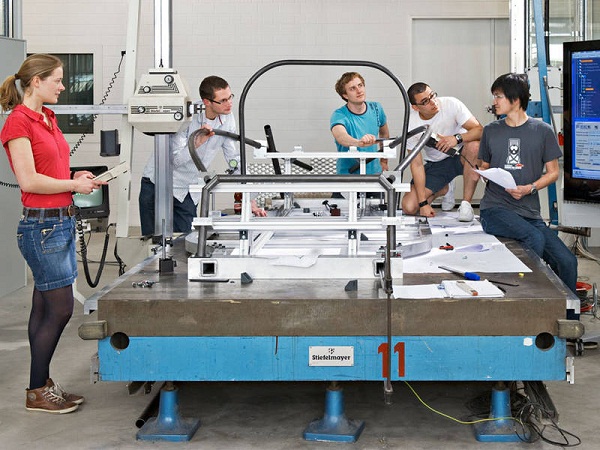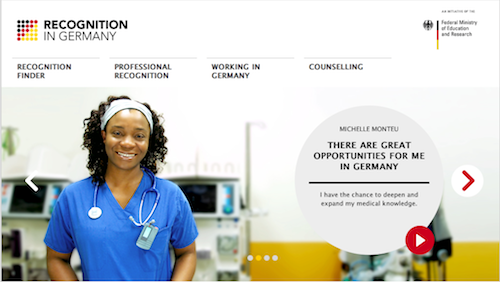After the au pair or FSJ/FÖJ/BFD/EFD year, most people are left grappling with which way to go. Coming from Kenya, education is highly regarded and most would prefer to join a Uni which to us back home is more “prestigious” than an Ausbildung, but aside from the prestige, why pick one over the other? It’s worth noting also that Ausbildung is NOT an inferior qualification to a University degree, some Ausbildungen require as much as an Abitur, read about them here: Abiturientenausbildungen.
In this article, I’ll be looking at “traditional” University vs “normal” Ausbildung. “Normal” Ausbildung is one which the Azubi (apprentice) is paid. There are other Ausbildung where the Azubi isn’t paid and sometimes has to pay to do an ausbildung, these are the Schulische Ausbildung, you can find the list here. “Traditional University” is where students study for the specified time and only get to work during an internship which runs for about 2-6 months. The opposite of this is the Duales Studium, read about it and what it entails here, it is compared to traditional University here.
Before getting into the Uni vs Ausbildung, the key questions to ask yourself would be:
- What I’m I good at?
- What I’m I interested in?
- What are my plans for my future?
You might wonder why I didn’t include: What is marketable and What pays best. Well, these two questions tend to vary overtime, what is marketable or pays the best today, might not be the same tomorrow. Also, I believe if you’re passionate about something, you’ll be able to reinvent yourself regardless of what crops up in the future. Look at Auma Obama, she studied Germanistik then returned to live in Kenya. An outsider might look at it and wonder, what will you use Germanistik for in Kenya? Maybe become a German lecturer at KU or work at Goethe? But Auma does none of those, even back then when she worked with CARE, she didn’t do those.
Some professions are only offered at the Uni while others are only as an Ausbildung.
Contents
Advantages of Ausbildung
- There’s no requirement for a sponsor or money in a fixed account inorder to get the visa
- You get exposure to working in that sector before graduating
- If you have a grade worse than C+, an Ausbildung will allow you to still be able to get into Uni
- More practical approach, less theory
- Easier to get a job after graduating
- Takes a shorter time usually 2-4yrs (read: Ausbildung durations)
- Offered in part-time for parents with children
- Some IHKs offer some courses as crash courses which take a shorter time than the usual course
- An Ausbildung allows you to start earning money earlier
- Some Ausbildungen allow for Semesters abroad within the EU (read: Leonardo Da Vinci Program Lifelong Learning – Azubis Going Abroad Funded by the EU)
Disadvantages of Ausbildung
- There has to be a high demand for the profession you are applying for inorder to get an Ausbildungs visa
- Your KCSE cert has to be converted to a German equivalent (Anerkannt). (Read: Where to get your KCSE Cert converted)
- The conversion of your KCSE Cert sometimes gives you a worse German equivalent.
- Because most Ausbildung are based on practical activities, chances of that profession being replaced by machines or computers is higher, thus chances of becoming unemployed are much higher.
- Harder to change careers
Advantages of University
- Visa is issued based on the admission letter to the University and NOT the demand for the profession
- Any grade above a C+ is enough to get you into a German Uni
- You don’t need to have your Kenyan KCSE Cert converted
- Students get to specialise in the field of choice and concentrate on it
- More flexible for those who might need some offtime inbetween
- Allows you the opportunity to take part in a Semester abroad and several internships that increase your exposure
- Degree holders tend to earn more overtime than those with an Ausbildung
- Lower unemployment rates than those with an Ausbildung
- Allows easier change of careers. Even with a degree in Engineering, it’s still possible to work in a bank for example.
Disadvantage of University
- You need atleast €8000 in a fixed account or a sponsor to get a visa
- You get very little time to get to know the practical side of the sector before graduating
- Although most Universities offer a recommended study duration, the flexibility tends to confuse some students leading to some taking many many years before graduating. (Worth noting though, is that as a foreign student in Germany, you are only allowed to extend your study duration by 3semesters more than the recommended study time.)










